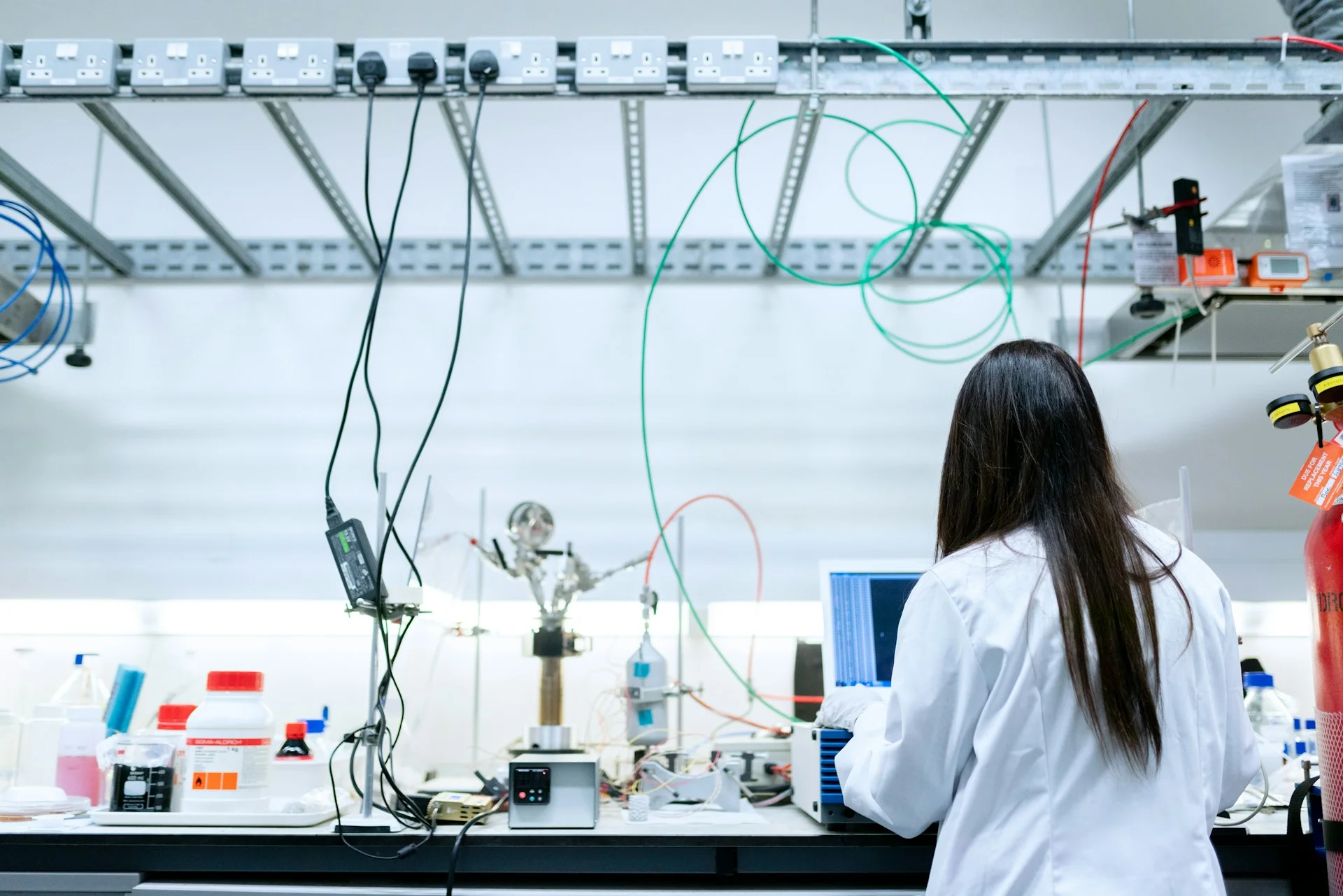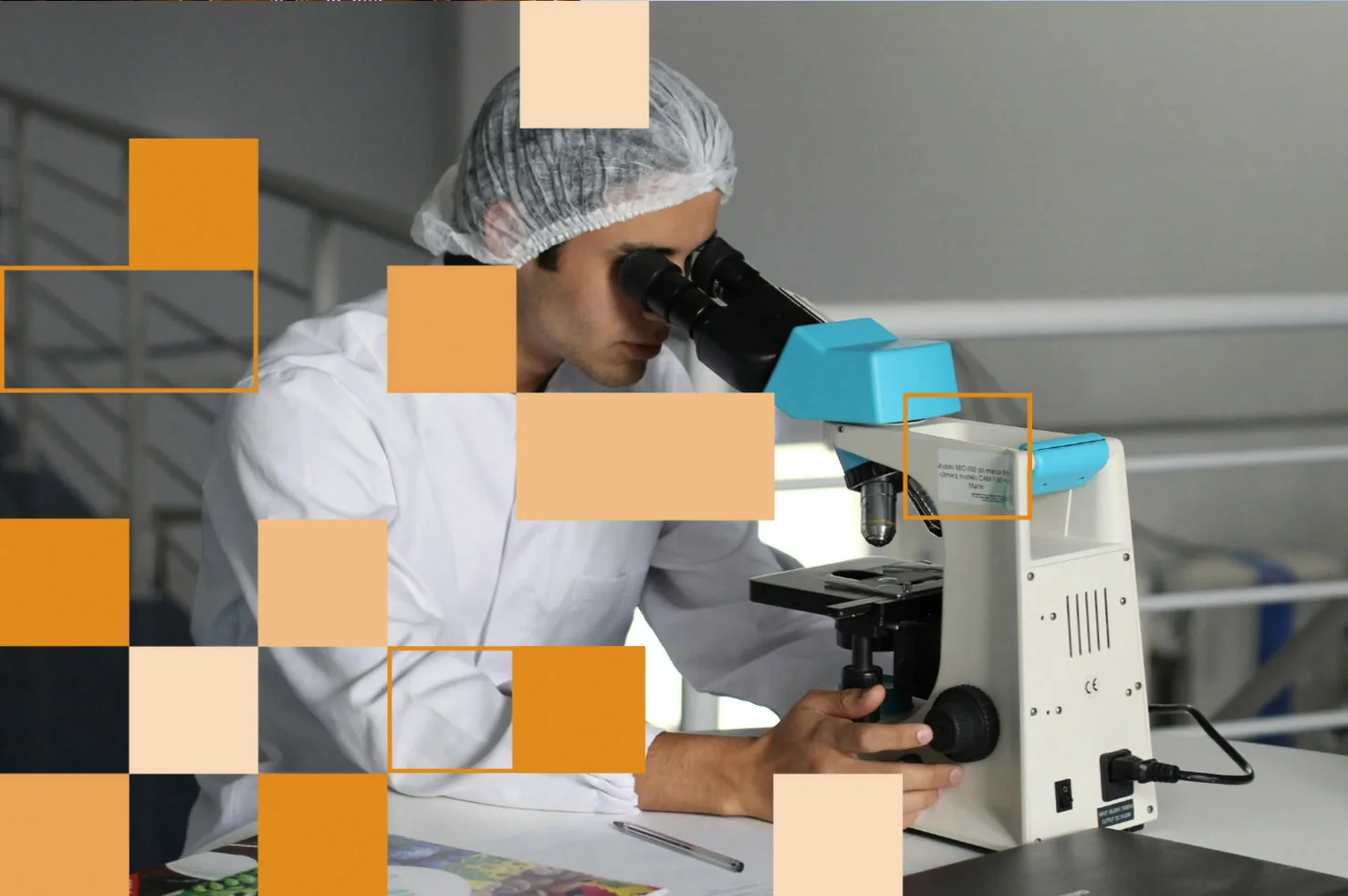Where a Chemical Engineering Degree Can Take You in Life Sciences
07 Oct, 20259 minuites
Life Science is one of the fastest-growing global sectors, with pharma, biotech, and medtech companies all scaling rapidly. They’re hiring engineers now - and a chemical engineering degree can open the door to validation, quality, regulatory, and process development roles across this space.
Many chemical engineers still overlook life science jobs and the opportunities in pharma recruitment because they assume their skills only fit oil and gas or traditional process industries. In reality, employers need technical minds who understand process control, compliance, and lab-to-plant scale-up, and they’re actively recruiting people with your background.
This guide shows you exactly what you can do with a chemical engineering degree in life sciences. It highlights the most in-demand roles, typical salaries, and career paths, and how Orion’s life science recruitment team can support your move into the sector.
We’ll also answer common questions such as:
- What are the best pharma jobs for chemical engineers?
- Do you need a PhD to work in life sciences?
- Is QA or validation better paid in pharma?
- How can I move from manufacturing or oil & gas into life sciences?
What Skills Make Chemical Engineers a Strong Fit for Pharma and Biotech?
Plenty of chemical engineers start out in oil, gas or manufacturing. The skills you’ve built there – running safe, efficient processes and solving technical problems – are exactly what life science employers need. Demand for engineers in pharma and biotech is rising fast. In London alone, engineering roles in life sciences have more than doubled over the past year (Vacancysoft). Across the UK, the sector expects around 70,000 new jobs by 2035 (BIA).
Which technical skills transfer best into life science jobs?
Your core engineering skills already map to pharma and biotech roles:
- Process design and optimisation – keeping production consistent and efficient.
- Risk analysis and mitigation – spotting problems before they become serious.
- Regulatory compliance and safety (GMP) – meeting tough quality and safety standards.
- Scaling up production – turning small-scale processes into large-scale manufacturing.
- Problem-solving and analytical thinking – fixing issues in complex systems.
What soft skills do life science employers look for?
On top of the technical side, employers prize:
- Project and people management
- Clear communication across teams
- Adaptability and quick learning
- Attention to detail
These traits help chemical engineers succeed in life science jobs like validation, quality assurance, regulatory affairs and process development.
Why is now a good time to move?
The UK life sciences sector is expanding quickly. Engineering vacancies in London rose by 103% last year, and overall the industry expects tens of thousands of new roles by 2035.
If you have a chemical engineering degree and want to move into a growing sector, now is the time to explore options. Orion’s life science recruitment team can show you where your background fits.
The Top Life Sciences Careers for Chemical Engineers
If you’re thinking of taking your chemical engineering degree into the life science sector, here are some of the key roles Orion recruits for. Each of these jobs uses the process, compliance, and problem-solving skills you already have.
1. What does a Validation Engineer do in life sciences?
A Validation Engineer keeps pharma and biotech facilities running safely and legally. They check that systems and equipment work exactly as intended so products stay safe and compliant.
Key responsibilities:
- Develop and run validation protocols
- Test equipment and processes against GMP standards
- Analyse data and record findings
- Identify and reduce compliance risks before production starts
Entry path:
- Typically three to five years of experience in a regulated environment
- Many roles are contract-based and offer premium pay
- A common first step for chemical engineers moving into life science jobs
2. What does a Quality Assurance (QA) Specialist do in life sciences?
A Quality Assurance Officer or QA Specialist makes sure products meet strict safety, effectiveness and reliability standards before they reach the market.
Key responsibilities:
- Test and monitor production processes
- Identify and prevent defects
- Maintain product integrity and regulatory compliance
Entry path:
- Bachelor’s degree in a scientific field is typical
- Senior QA roles usually expect five to seven years’ experience in regulated environments
- These positions are often permanent and offer strong job stability
Why it fits chemical engineers:
Your experience with process control, safety and compliance gives you an advantage in QA.
3. Can chemical engineers work in Regulatory Affairs?
Yes. A Regulatory Affairs Associate helps pharma and biotech companies meet legal requirements and get products approved.
Key responsibilities:
- Prepare and submit compliance documents
- Maintain regulatory records throughout product development
- Support communication with authorities during approvals
Entry path:
- Bachelor’s degree in pharmacy, engineering or another scientific field
- Strong written and analytical skills are essential
- This can be a good route for chemical engineers with an interest in documentation and compliance
4. What does a Process Development Engineer do in pharma?
A Process Development Engineer designs, improves and scales manufacturing processes so they meet quality standards and regulations.
Key responsibilities:
- Enhance process efficiency and troubleshoot issues
- Manage risk assessments in production environments
- Support technology transfer and process validation
- Integrate new manufacturing technologies and scale processes from R&D to manufacturing
Entry path:
- Degree in Chemical Engineering, Bioprocess Engineering, Biochemistry, Biotechnology or related
- Suits engineers who enjoy problem solving and improving complex systems
5. What are Manufacturing Support roles in life sciences?
Manufacturing Support covers a range of positions that keep pharmaceutical, biotech and medical device production running smoothly.
Key responsibilities:
- Assist in the design, installation and maintenance of manufacturing equipment
- Ensure products meet strict quality standards and regulatory guidelines such as GMP
- Provide technical support for manufacturing operations
Entry path:
- Undergraduate or master’s degree in engineering (electrical, industrial, mechanical), biology, chemistry or pharmaceutical sciences
- Ideal for people who like hands-on work and supporting multiple projects
These are some of the most common pharma jobs for chemical engineers, that Orion Group recruits for.

Salary Expectations and Career Growth in Life Sciences
If you’re thinking of crossing sectors into Life Science, then salary will obviously be a leading motivator. You’ll want to know what’s realistic, especially if you’re leaving another sector or considering contract work.
The numbers depend heavily on location, experience, the employer, and whether the role is contract or permanent. Use them as guides, not guarantees.
Below are some expected salaries based on location, for some of the key roles identified previously (contractor rates for each role, while not provided, should match in terms of which location provides the highest rates).
1. What is the salary for a Validation Engineer?
- Entry level UK: about £26,000 per year
- Typical UK average: around £44,000, with higher rates in major hubs
- US range: roughly $70,000 to $180,000 depending on seniority and location
- EU: €50,000 to €90,000 varying by country and experience
Orion insight: Contract Validation roles often pay premium day rates compared to other entry routes, especially in high-demand regions.
2. What is the salary for a Quality Assurance Specialist?
- Entry level UK: about £27,000 per year
- Typical UK average: about £35,000, adjusted by region and seniority
- US: about $60,000 to $90,000
- EU: about €35,000 to €60,000 depending on experience and country
Orion insight: QA roles offer long-term stability and steady pay rises but fewer contract premiums than validation.
3. What is the salary for a Regulatory Affairs Associate?
- Entry level UK: about £25,000 per year
- Typical UK range: £25,000 to £41,000
- US: about $60,000 to $80,000
- EU (Germany): about €40,000 to €65,000
Orion insight: Regulatory Affairs offers clear progression from Associate to Manager. Strong written and analytical skills can accelerate pay increases.
The typical trend across all roles is the higher salaries and benefits packages in the US - reflecting higher living costs and competitive biotech markets - while the UK and EU offer slightly lower salaries, but often include more robust social benefits and vacation time.
All roles offer clear pathways for career advancement, such as junior QA Officer to QA Lead to QA Manager. The diversity and variety of these global roles can found in Orion’s latest life science jobs.
How to Make the Successful Transition: From Degree to Life Sciences Role
Thinking about switching over? Good. Life science jobs need your skills. You don’t have to start from scratch. Here’s how to make it work.
1. Show your transferable experience
If you’ve been in manufacturing, oil and gas or any large operational plant, you already know clean working, safety rules and scale. That’s gold in pharma and biotech.
- Mention cleanroom or HSE training
- Talk about process control and automation you’ve used
- Highlight hazard spotting and continuous improvement - this is GMP thinking in action
Write it down. Don’t assume hiring managers will guess.
2. Bring up your soft skills
You’ve probably been running teams, talking to suppliers, fixing problems under pressure. Say it. Employers in life sciences love:
- Communication and teamwork
- Leadership and organisation
- Problem solving and adaptability
- Careful documentation
These skills are the difference between being noticed and being ignored.
3. Update your CV for pharma and biotech
When you’re aiming for pharma or biotech roles, move the relevant experience to the top of your CV so a hiring manager sees it straight away. Think:
- Compliance and GMP work you’ve done
- Process control or automation projects
- Scale-up experience
- Any training or certifications in regulated industries
Add one line in your personal statement about why you want to move into life science jobs. Then show both hard and soft skills in your bullet points.
Example CV bullet points that work:
- “Led the installation and validation of an automated process control system, achieving 98% uptime in a GMP-regulated plant.”
- “Managed a cross-functional team of 12 during a scale-up project, reducing production costs by 15% while meeting FDA compliance.”
- “Implemented hazard identification protocols that cut safety incidents by 30% in a high-risk manufacturing environment.”
These kinds of examples make it obvious to a recruiter or hiring manager that your chemical engineering background translates to pharma and biotech jobs.
4. Use contract roles as a door in
Short contracts are often the easiest way into life sciences. They give you the experience recruiters look for. After a couple of stints, moving to a permanent role is easier. If your background is already strong, go ahead and apply for permanent jobs too.
5. Get help from a recruiter who knows both worlds
This is where Orion comes in. We’ve helped plenty of chemical engineers cross over into life science jobs. We can:
- Look over your CV and make it market-ready
- Point you at the best entry roles
- Give you a heads-up on pay and interviews
Whatever background you’re coming from into Life Science, Orion supports cross-sector transitions, in disciplines such as chemical engineering, and can guide and prepare you for any eventuality. This includes improvements to your CV’s and interview preparation when applicable.

Final Thoughts: Don’t Overlook Life Sciences - Start Exploring Now
If you’re still looking to transition with a Chemical Engineering background, then don’t forget that Life Science offers a rewarding and clear career path. The life sciences sector is constantly accelerating, and is currently facing a shortage of qualified professionals for many roles.
Therefore, if you have a chemical engineering degree and background, you’ll be seen as a highly valuable asset.
Speak to Orion About Chemical Engineering Jobs in Life Science
Orion supports engineers at all career stages - whether you're entering the industry or looking to contract at a higher rate. Our consultants understand GMP, validation, and regulatory needs - and we can help match your background to the right role.
If you’re still curious, contact one of our life science recruitment consultants who’ll be able to help you on your next career journey. Orion has placed engineers in pharma, biotech, and medtech roles across the globe, including the US, UK, Ireland and EU.
View our latest life sciences jobs today.



